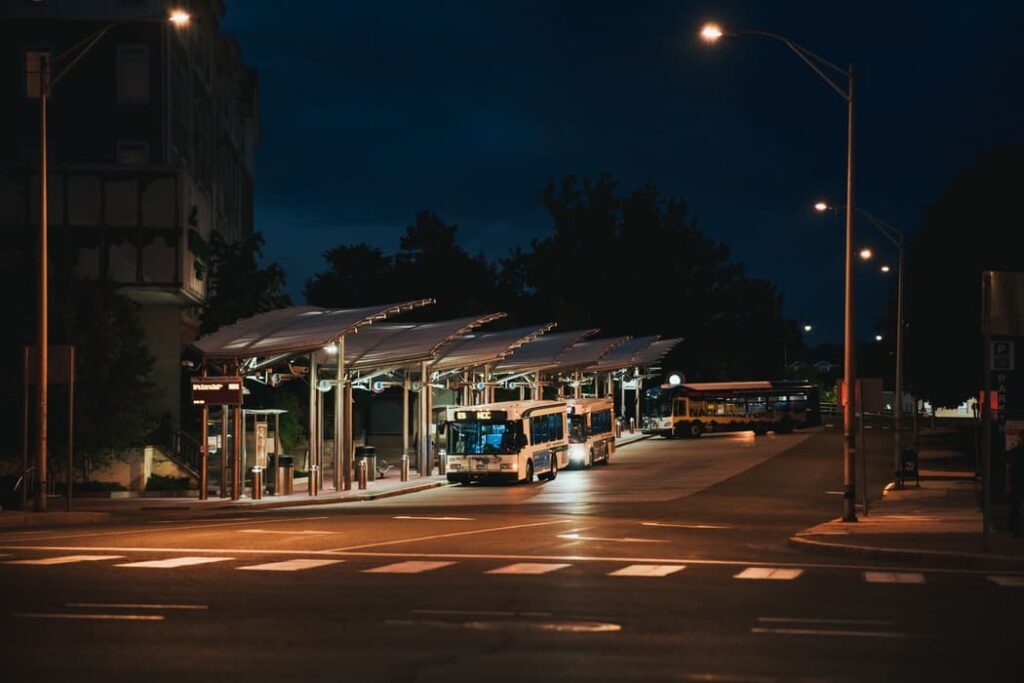Imagine stepping off a bus in a city you have never visited. You have no money. You have no place to stay. You need a mental health care provider but have none. You wander the streets for weeks with no home or food. The city has become your nightmare.
Many mentally ill people end up in Washington, D.C., attracted by the presence of the federal government. They are fortunate to have the Travelers Aid program.
Run by the Office of Homeless Services in the Department of Mental Health (DMH), the D.C. program is part of a nationwide organization with member agencies in major cities across the country designed to help anyone stranded in a city. The motto of D.C.-based Travelers Aid International is “a helping hand along the way” which is exactly what they provide. While each local agency differs in what it offers, many providers offer shelter for the homeless, transitional housing, job training, counseling and local transportation assistance.
However, the ability to return mentally ill people to their care providers is the focus of the program. Michele May, coordinator of homeless services, describes Travelers Aid as a program that helps “stranded people get back to their treatment providers.” Travelers Aid aims to help people who have just arrived reconnect with their mental health provider back home or with a new one in their future home. Often the Travelers Aid worker will ask for a contact – a doctor or mental health care provider—from the person’s home or next destination. This assures that they will not be sending someone back into a shelter, but rather to a service provider who can help with their mental health issues. If the person is looking for someone here, the workers in Travelers Aid help him or her connect with a new mental health care provider.
A person who is stuck in the city without a home might hear about Travelers Aid at a shelter, a soup kitchen, or even from an aide on the street. A Travelers Aid worker can get the person to the bus station if necessary and provide him or her with a voucher for a ticket.
Travelers Aid has a partnership with Greyhound, which helps ease the costs of transporting people across the country. They provide a 25% discount off ticket prices for Travelers Aid users. In D.C., the DMH awarded the local agency a grant. It was also bolstered by the Community Partnership, which provides shelters with funds from the Department of Human Services.
The D.C. Travelers Aid agency started four and a half years ago as an idea brought in by Jim Zinn, of the Office of Homeless Services, and his supervisor. They suggested the DMH should provide travel-related services for homeless and mentally ill persons. DMH agreed, created a special position for these services and then hired Zinn to fill it.
Now, five workers help with Travelers Aid in the Office of Homeless Services. Other projects they work on include coordinating with psychiatry students to teach them how to work with the homeless and their specific problems; teaching shelter providers about mental illness; and visiting shelters to link or re-link homeless with social workers. In the winter they help distribute blankets.
Connecting people with a mental health care provider is the organization’s focus, however. May describes Travelers Aid as help in “acclimation.” The workers in Homeless Services are determined to help a person feel more comfortable in D.C., or to get them to that place with the health care help they need. In an average month the program funds the travel of seven to 10 people; in a year, 100. Usually only five return to D.C.
Travelers Aid proudly declares that last year they helped five million people in 48 communities and at 36 transportation centers. They provided casework services to 200,000 people, including homeless individuals and families in crisis. Working across the U.S., Canada, and Puerto Rico, Travelers Aid is determined to help any journeyer who runs into trouble. In D.C., Michele May, Jim Zinn, and the other workers at the Office of Homeless Services are determined to keep the mentally ill connected with health care providers and to make sure no traveler is left stranded in the city.




